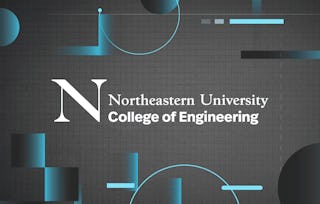The course "Foundations of Distributed Database Systems" lays the foundation for understanding distributed database systems, a cornerstone of modern data management. You’ll delve into core principles and architectures, gaining insight into the challenges of managing data across distributed environments. Through hands-on learning, you’ll explore horizontal and vertical partitioning techniques, understanding how to apply them to improve query performance and scalability.

Foundations of Distributed Database Systems

Foundations of Distributed Database Systems
This course is part of Large-Scale Database Systems Specialization

Instructor: David Silberberg
Included with
Recommended experience
What you'll learn
Understand distributed database architectures and translate SQL queries into relational algebra expressions for optimization.
Apply horizontal partitioning techniques to enhance database performance and scalability based on query patterns.
Implement vertical partitioning strategies to improve query response times and manage data more efficiently in distributed systems.
Skills you'll gain
Details to know

Add to your LinkedIn profile
9 assignments
See how employees at top companies are mastering in-demand skills

Build your subject-matter expertise
- Learn new concepts from industry experts
- Gain a foundational understanding of a subject or tool
- Develop job-relevant skills with hands-on projects
- Earn a shareable career certificate

There are 4 modules in this course
This course provides a comprehensive overview of distributed database systems, focusing on their architecture and key components. Students will explore the significance of distributed databases in modern data management and delve into the challenges they present, including data consistency, scalability, and fault tolerance.
What's included
2 readings
This course delves into the core principles and challenges of distributed database systems, essential for modern data management. Students will learn to define various distributed database architectures, identify key issues in distributed systems, and translate SQL queries into relational algebra expressions, equipping them with the skills to manage and optimize distributed databases.
What's included
8 videos5 readings3 assignments
This course provides an in-depth exploration of horizontal partitioning techniques in distributed databases. Students will learn to identify scenarios where horizontal partitioning enhances query performance and will gain practical experience in implementing horizontal partitioning strategies based on specific user query patterns, optimizing database responses for improved efficiency and scalability.
What's included
5 videos4 readings3 assignments
This module explores the vertical partitioning technique, a powerful method for optimizing distributed database performance. You'll learn to identify scenarios where vertical partitioning enhances query response times and gain practical skills in implementing this technique based on specific user query patterns, leading to more efficient database management.
What's included
4 videos4 readings3 assignments
Earn a career certificate
Add this credential to your LinkedIn profile, resume, or CV. Share it on social media and in your performance review.
Instructor

Offered by
Explore more from Software Development
 Status: Preview
Status: PreviewNortheastern University
 Status: Free Trial
Status: Free TrialBoard Infinity
 Status: Free Trial
Status: Free TrialJohns Hopkins University
 Status: Free Trial
Status: Free Trial
Why people choose Coursera for their career

Felipe M.

Jennifer J.

Larry W.

Chaitanya A.

Open new doors with Coursera Plus
Unlimited access to 10,000+ world-class courses, hands-on projects, and job-ready certificate programs - all included in your subscription
Advance your career with an online degree
Earn a degree from world-class universities - 100% online
Join over 3,400 global companies that choose Coursera for Business
Upskill your employees to excel in the digital economy
Frequently asked questions
To access the course materials, assignments and to earn a Certificate, you will need to purchase the Certificate experience when you enroll in a course. You can try a Free Trial instead, or apply for Financial Aid. The course may offer 'Full Course, No Certificate' instead. This option lets you see all course materials, submit required assessments, and get a final grade. This also means that you will not be able to purchase a Certificate experience.
When you enroll in the course, you get access to all of the courses in the Specialization, and you earn a certificate when you complete the work. Your electronic Certificate will be added to your Accomplishments page - from there, you can print your Certificate or add it to your LinkedIn profile.
Yes. In select learning programs, you can apply for financial aid or a scholarship if you can’t afford the enrollment fee. If fin aid or scholarship is available for your learning program selection, you’ll find a link to apply on the description page.
More questions
Financial aid available,

